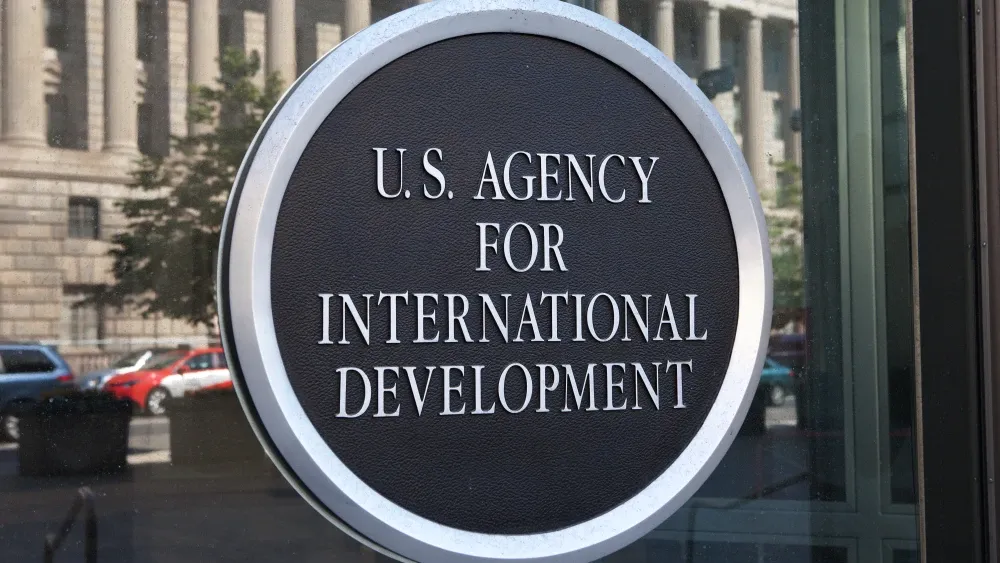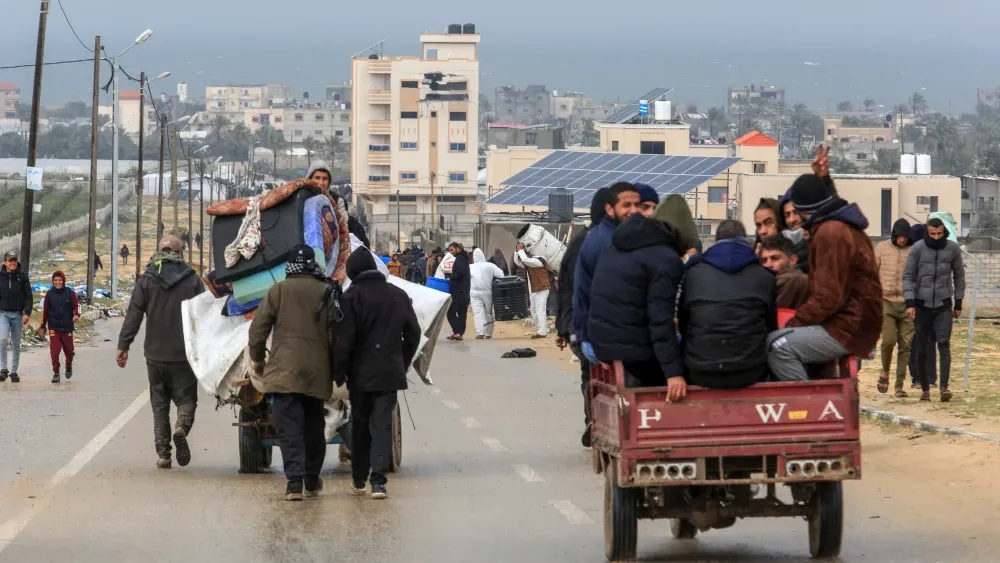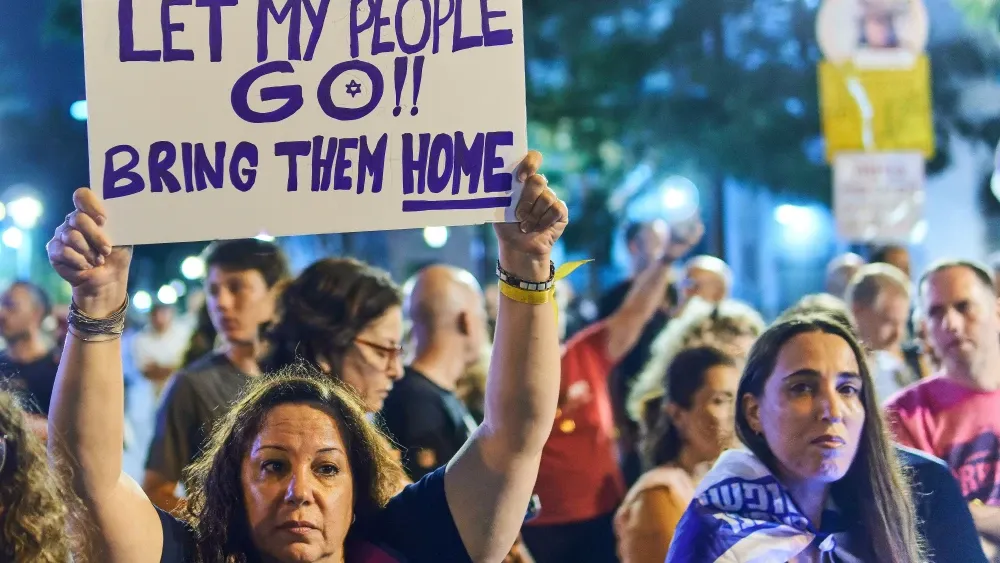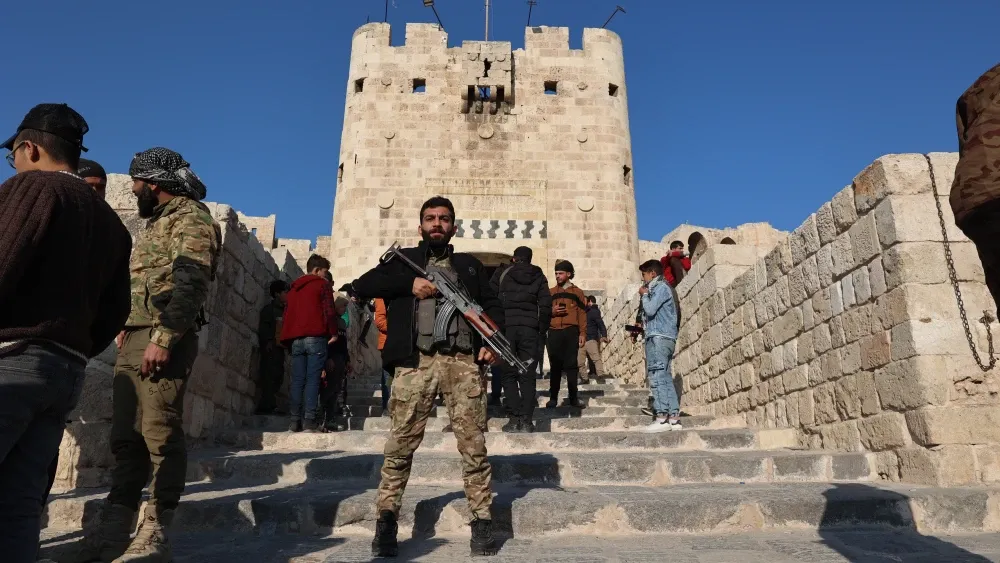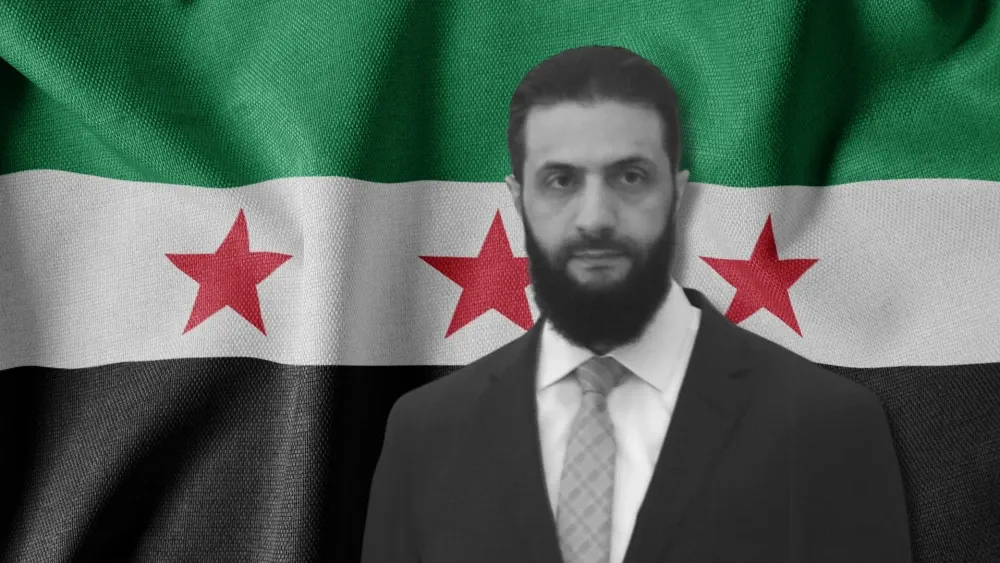| ||
 | ||
| MEF Dispatch: The Purpose of Foreign Aid, Trump’s Gaza Gambit, Syria’s Worrisome Future, & Islamist Obstructionism at Home By Winfield Myers ● Feb 09, 2025 Smart Brevity® count: 5.5 mins...1505 words In light of Trump’s crackdown on foreign aid, what is that aid’s purpose, from humanitarian assistance to military goods to greasing palms—and does it serve the taxpaying public? Trump’s also shaking up Gaza’s future, but to what end? Israel, tragically, faces a “monstrous blackmail” by Hamas. In Syria, while Europe tries to cover all its bases diplomatically, the Syrians worry that HTS plans to create an Islamist, sharia-based rule that leaves little room for minorities, including the well-armed, secular, and pro-Western Kurds. Here in North America, Islamists in the U.S. work to thwart law enforcement officers from doing their jobs, thereby enabling potentially dangerous illegal immigrants to remain in the country. And in Canada, an Islamic nonprofit has invited a British Islamist preacher to speak at an upcoming conference even though he has called pedophilia “relative” and condoned having sex with minors. | ||
Blankets, Bombs, or Bribes: Why Give Foreign Aid?The Trump administration's freeze on USAID grants has sparked a critical reevaluation of its foreign aid efficacy. Why it matters: USAID's funding has been linked to groups with troubling affiliations, raising serious national security concerns.
The stakes: For decades, USAID has operated under the assumption that more money equals success.
What’s next: The administration's scrutiny aims to redirect aid towards more strategic and accountable uses.
To read the full article, click here. | ||
Trump’s Gaza Plan Won’t Happen, but It Could Certainly Shake Up the RegionPresident Trump stunned the world with his proposal for the U.S. to take over the Gaza Strip, marking a potential shift in Middle Eastern policy. Why it matters: This bold move challenges conventional diplomacy and could redefine U.S. influence in the region.
The backlash: Key players like Egypt and Jordan view this as a threat to their stability and sovereignty, pushing back against U.S. pressure.
Opportunities ahead: Despite resistance, this proposal opens doors for new diplomatic strategies and alliances.
To read the full article, click here. | ||
Free 100 Terrorists to Save a Jew Today and Sacrifice 100 Jews TomorrowIsrael's history of releasing terrorists in prisoner exchanges continues to haunt its national security, as freed individuals often return to orchestrate deadly attacks. Why it matters: These exchanges embolden terrorists, undermine Israeli security, and lead to further bloodshed.
Historical context: Over decades, Israel has exchanged thousands of terrorists for a few citizens, with devastating consequences.
The harsh reality: The monstrous blackmail that Israel agreed to pay to the Gaza Jihad also feeds on the psychological torment of those who have returned.
To read the full article, click here. | ||
Europe’s Pragmatic Approach to Syria Rooted in Afghanistan DebacleEurope's swift engagement with Syria's new leadership contrasts sharply with its continued refusal to recognize the Taliban. Why it matters: This dual approach highlights Europe's strategic balancing of moral imperatives with geopolitical realities.
Geopolitical shift: Syria's interim government projects pragmatism, distancing itself from Assad's regime and Islamist ties.
Looking forward: Europe hopes to leverage lessons from Afghanistan, cautiously supporting Damascus to foster stability and security in the region.
To read the full article, click here. | ||
Syrian-Kurdish Foreign Affairs Chief to ‘Post': ‘Syria’s Security Needs Israel Involved'—InterviewIn the aftermath of Assad's fall, the Kurdish-led Autonomous Administration of North East Syria (AANES) asserts its vision for a progressive, inclusive society. Why it matters: Controlling 30 percent of Syria, including vital resources, the Syrian Kurds are pivotal in advocating for women's rights, decentralization, and secularism.
Current tensions: The Syrian Democratic Forces (SDF), representing AANES, face opposition from Damascus's HTS, which rejects their inclusive approach.
Future prospects: With continued U.S. support, the Syrian Kurds aim to solidify their democratic model as a beacon of stability in the region.
To read the rest of the interview, click here. | ||
Is Hay’at Tahrir Al-Sham Laying the Groundwork for Renewed Dictatorship in Syria?Ahmed al-Sharaa's rise as Syria's interim president signals a dangerous entrenchment of HTS's Islamist agenda. Why it matters: HTS's control over Syria's state institutions marks a stark departure from any hope for pluralism, steering the country towards Sunni Islamist dominance.
Strategic maneuvers: By dismantling Assad-era structures, HTS paves the way for autocratic rule, manipulating Gulf aid to project itself as a savior amid widespread destitution.
The harsh reality: Al-Sharaa's regime is poised to dictate Syria's political landscape, marginalizing liberal forces fighting for genuine reform.
To read the full article, click here. | ||
Islamists Obstruct Efforts to Deport Criminal AliensAs President Trump enforces stricter immigration policies, the Council on American-Islamic Relations (CAIR) actively obstructs the U.S. Immigration and Custom Enforcement’s (ICE) efforts, sparking national security debates. Why it matters: CAIR's guidance to shield illegal immigrants challenges ICE's ability to enforce immigration laws, potentially endangering public safety.
Tactics in play: CAIR's newsletters instruct noncitizens to evade ICE, undermining enforcement priorities and complicating operations.
The broader context: As CAIR and allies like Rep. Ilhan Omar continue their resistance, the debate intensifies over whether such organizations should operate freely while opposing U.S. law enforcement.
To read the full article, click here. | ||
Islamist Provocateur Who Condoned Pedophilia to Speak near TorontoThe i3 Institute's invitation to Mohammed Hijab for the "Reviving Roots" conference in Canada draws significant criticism. Why it matters: Hijab, known for extremist views, poses a threat to community harmony and public safety.
Community response: Local leaders, including Burlington's mayor, have condemned the event, emphasizing the city's commitment to tolerance and safety.
The broader issue: This incident highlights Canada's growing challenge with extremist influences and the need for vigilance against radicalization.
To read the full article, click here. | ||
Further Reading:
| ||
| The Dispatch strives to bring you concise analyses of the day’s most pressing issues. Our next issue will include more on the Trump administration’s latest shake-up of the status quo, defeating the Houthi terrorists of Yemen, and other matters that influence our world. Sincerely, | ||
| Was this edition useful? Your responses are anonymous | ||
| Powered by | ||
| ||

